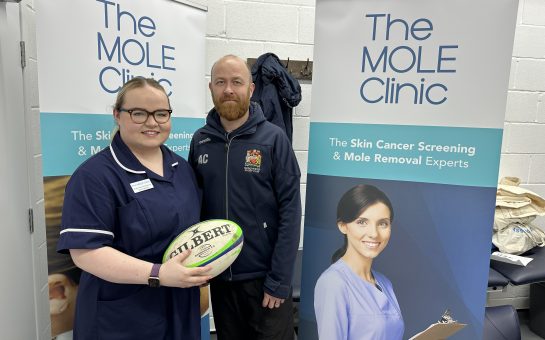A Manchester student’s death to suspected meningitis has prompted a university graduate who survived the virus to reveal her own frightening ordeal in the hope of saving lives.
Fiona Ryan, from Kearsley, Bolton, has spoken out to MM following the tragic death of 19-year-old Teygan Sugrue earlier this week.
Teygan was at his student accommodation on the Owen’s Park campus in Fallowfield when he became ill.
Fiona described her battle with meningitis as a ‘weird and scary’ experience.
The 23-year-old contracted the disease when she was 15 but still remembers the rapid onset of her illness – and passes this on as a warning to anyone with similar symptoms to act swifly.
From enjoying her Easter holidays to being rushed into hospital and being put on a drip, she was one of the many thousands of young people who had never given the intermittently fatal disease a previous thought.
“I was ill in the morning and I had flue like symptoms, it was quite slow in the day,” Fiona said.
“I went to sleep in the afternoon before we went out for my sister’s birthday and I just sat there feeling hot and cold and experiencing all these flu like symptoms.
“When I was cold I was sat in front of the fire even though it was too hot. I could feel the fire burning my back, I could feel it burning me but I was too cold to move away from it.”
Sensitivity to light, feeling cold and a rash are all common signs of meningitis, all of which are symptoms that Fiona experienced.
She said: “It all got a little weird when my cousin started taking photos. Every time the flash went into my eye, it blinded me for about 15 seconds each time.
“It was almost like the darkness started closing in, so what I could see was a little circle and then it went completely black for about 15 seconds.
“We had been sat at the table for about an hour having our meal and as it was time to leave our table to move to the bar. But I couldn’t get up.
“I couldn’t walk anywhere, I had to get my gran and my dad to help me walk to the bar. I sat down for about five minutes before my dad decided to take me home.”
As soon as she arrived home, Fiona’s dad called the NHS helpline who advised him to carry out the tumbler test to identify any signs of a rash – moments later she was being rushed into A and E.
“I was on a drip and given a load of medication to help fight it but in total was in hospital for five days,” she said.
“Before I contracted meningitis I never really understood how serious it was. I never knew that people had lost limbs or died from it.
“It was a scary time for everyone one of course but thankfully I made a full recovery.”
And now meningitis awareness organisations are asking young adults to be vigilant about the fatal disease.
In the UK, 15-24-year-olds are the second group highest at risk of coming in contact with the viral disease.
University students are more susceptible to the disease as they are likely to mix closely with new people, some who may unknowingly carry the meningococcal bacteria.
Adrian Robson from Meningitis Research Foundation explained to MM the kind of help that is out there for young adults.
He said: “Most students would fall into the 15 to 24-year-old category. It is important for them to understand that they are indeed at risk.
“The first thing they need to do is to make sure they’re up to date with all of their immunisations and jabs that they could possibly have against meningitis.”
This summer, the NHS introduced the student catch-up programme, that aims to give freshers under the age of 25 the chance to have the Men C booster vaccine.
Though the Men C vaccine can protect against meningococcal group C bacteria, which is often the cause of meningitis and septicaemia, it doesn’t protect people from group B diseases, which is commonly found in infants.
“There is a Men C type programme that is running at the moment but the problem with that is that there aren’t vaccinations for all forms of the disease,” Adrian continued.
“So what you’ve got to do is make sure you know all the signs and symptoms of the disease as well and make sure that everyone is looking out for each other too.
“It’s important that health authorities keep putting out information to alert people about the fact that meningitis and septicaemia is indeed a risk for people at university.”
Meanwhile, former Leeds University student, Kathleen Hawkins, describes how she caught meningitis a week into fresher’s week.
For more information about meningitis is young people, follow this link
http://www.meningitis.org/symptoms/young-people
Main image courtesy of Fiona Ryan via Facebook, with thanks.



